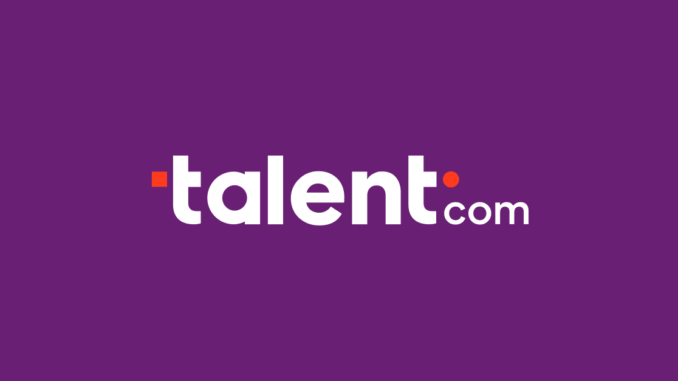

Delft University of Technology (TU Delft)
Join the frontier of innovation in 6G: the future of mobile networks technology! In the Netherlands, a unique alliance of 60 top-notch ICT companies, semiconductor firms, and research institutions has united to spearhead specific aspects of 6G: (1) software antennas, (2) AI-driven network software, and (3) groundbreaking 6G applications. Join us as a PhD student in this prestigious Future Network Services (FNS) flagship project, where research and entrepreneurial pursuits converge.
Various 6G vision papers have underlined the social value that’s meant to be derived from 6G; think of reducing digital divides within and between countries, building trust, etc. As it stands, though, the telecom industry itself does not have the structures in place to cater to this. How can we encourage ethical outcomes and embed responsibility by design in developing 6G? How do we navigate design trade-offs responsibly? How to assure the responsible and explainable use of AI in 6G? Thus, analogous to “responsible AI”, can systems and technologies be developed that support “responsible 6G” design? Your PhD research will explore just that. This PhD offers ample freedom to pursue your research interests, be it in responsible AI, cybersecurity, privacy-by-design, etc. for mobile networks, and in that process we will not only consider functional requirements (like throughput and latency), but also non-functional requirements related to norms and values. For example privacy-preserving and bias-free design.
Become the catalyst for responsible innovation! Your research isn’t just about asking questions; it’s about forging a path toward 6G that prioritises ethics. Your home base will be the Networked Systems group, where you will be supervised by Prof. Fernando Kuipers (professor of computer science). You will be co-supervised by Jeroen van den Hoven (professor of ethics). Hence, you get to spar with two groups. In this highly interdisciplinary, collaborative, and friendly atmosphere, we will give you all the support you need to develop and grow.
Specifications
Delft University of Technology (TU Delft)
Requirements
Become part of an expansive ecosystem shaping the development of 6G. You will benefit from training in 5G and beyond networks, AI, and software development. Plus, you will gain exclusive access to (1) a state-of-the-art testbed where theory meets real-world application, and (2) an ecosystem that cultivates entrepreneurial endeavours.
Are you ready to challenge yourself? We’re seeking candidates who have, or are about to receive, a Master-of-Science degree in a relevant computer science discipline. We’ll evaluate based on your academic record, interviews, and possibly assignments. While a strong background in the field is crucial, what matters as well is your creative flair, motivation, and above all, your passion for comprehensive research!
The industrial PhD will become an employee of VodafoneZiggo. TU Delft is providing assistance in the recruitment process.
Doing a PhD at TU Delft requires English proficiency at a certain level to ensure that the candidate is able to communicate and interact well, participate in English-taught Doctoral Education courses, and write scientific articles and a final thesis. For more details please check the .
Conditions of employment
Fixed-term contract: 4 years.
Doctoral candidates will be offered a 4-year period of employment in principle, but in the form of 2 employment contracts. An initial 1,5 year contract with an official go/no go progress assessment within 15 months. Followed by an additional contract for the remaining 2,5 years assuming everything goes well and performance requirements are met.
Salary and benefits are in accordance with the Collective Labour Agreement for Dutch Universities, increasing from € 2770 per month in the first year to € 3539 in the fourth year. As a PhD candidate you will be enrolled in the TU Delft Graduate School. The TU Delft Graduate School provides an inspiring research environment with an excellent team of supervisors, academic staff and a mentor. The Doctoral Education Programme is aimed at developing your transferable, discipline-related and research skills.
The TU Delft offers a customisable compensation package, discounts on health insurance, and a monthly work costs contribution. Flexible work schedules can be arranged.
For international applicants, TU Delft has the . This service provides information for new international employees to help you prepare the relocation and to settle in the Netherlands. The Coming to Delft Service offers a for partners and they organise events to expand your (social) network.
Employer
Delft University of Technology
Delft University of Technology is built on strong foundations. As creators of the world-famous Dutch waterworks and pioneers in biotech, TU Delft is a top international university combining science, engineering and design. It delivers world class results in education, research and innovation to address challenges in the areas of energy, climate, mobility, health and digital society. For generations, our engineers have proven to be entrepreneurial problem-solvers, both in business and in a social context.
At TU Delft we embrace diversity as one of our core and we actively to be a university where you feel at home and can flourish. We value different perspectives and qualities. We believe this makes our work more innovative, the TU Delft community more vibrant and the world more just. Together, we imagine, invent and create solutions using technology to have a positive impact on a global scale. That is why we invite you to apply. Your application will receive fair consideration.
Challenge. Change. Impact!
Department
Faculty Electrical Engineering, Mathematics and Computer Science
The Faculty of Electrical Engineering, Mathematics and Computer Science (EEMCS) brings together three scientific disciplines. Combined, they reinforce each other and are the driving force behind the technology we all use in our daily lives. Technology such as the electricity grid, which our faculty is helping to make completely sustainable and future-proof. At the same time, we are developing the chips and sensors of the future, whilst also setting the foundations for the software technologies to run on this new generation of equipment – which of course includes AI. Meanwhile we are pushing the limits of applied mathematics, for example mapping out disease processes using single cell data, and using mathematics to simulate gigantic ash plumes after a volcanic eruption. In other words: there is plenty of room at the faculty for ground-breaking research. We educate innovative engineers and have excellent labs and facilities that underline our strong international position. In total, more than 1000 employees and 4,000 students work and study in this innovative environment.
Click to go to the website of the Faculty of Electrical Engineering, Mathematics and Computer Science.
